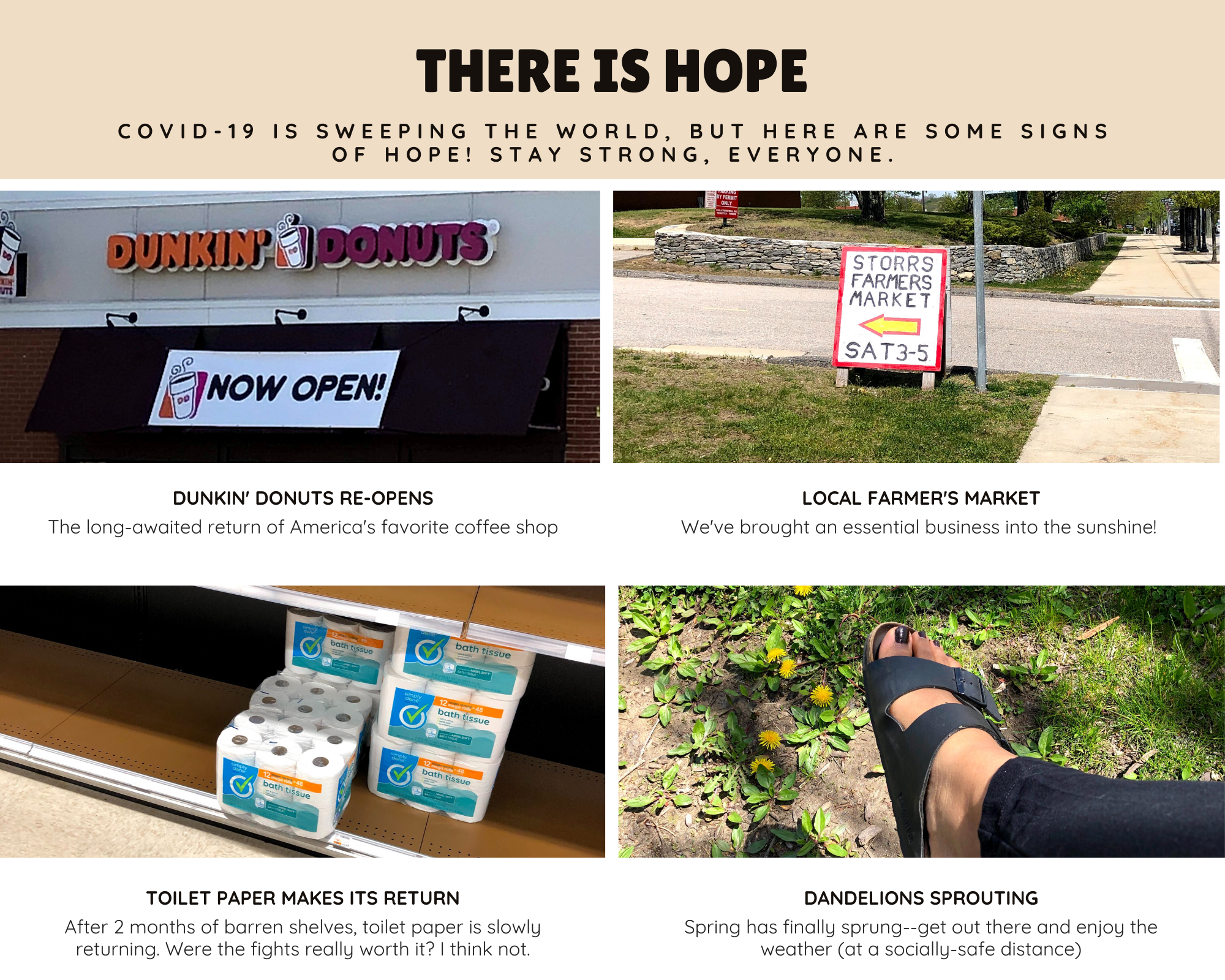Featured Refresh
Text & Image
How is the coronavirus pandemic affecting your life right now? Tell us about your experiences, feelings, and thoughts.
There is not one individual on the face of this planet who hasn't been affected by this pandemic. Our immediate reaction was to panic. It was to stock up on toilet paper. It was to go out for coffee and pretend like none of this was happening. We did this out of fear. We did this out of ignorance. Now, the world is coming to life as it realizes that it is truly homebound. This sparks a lot of negative feelings of despair. Therefore, I've been finding ways to channel hope. ... Taking pictures is essential in the 21st century. ... So, being the 18-year-old I am, I snapped some pictures. ... "Well," I thought, "If toilet paper is back and Dunkin' is open, maybe the world isn't ending." And the truth is, it isn't. There have been pandemics before us and there will be plenty after this one. Humans are just going to have to adjust and make the best of it. Documenting these small, mundane images serves as hope for me. As I watch the dandelions grow beneath my feet in this ever-changing season, I realize that COVID-19 is not the end-all. I realize that, even in the face of hopelessness, there are small ways to channel faith. It all depends on your outlook.
June 30, 2020
Text Only
What do you think history books will say about this time? In your view, what's most important for them to include?
I am curious about how history will treat this time. I only learned about the 1918 Flu epidemic sometime in the 1990's through watching old video tapes of Upstairs Downstairs. It was only when this pandemic really descended that the 1918 Flu seemed to become more commonly written and spoken about. I hope that this pandemic is more commonly known in the future, especially the lessons that I hope we learn from it. First of all, the number of deaths we have experienced during this pandemic should be known, and emphasized, especially the suffering that people experienced. I also hope that the heroics of frontline workers is written about, and how many of them also lost their lives treating people who were sick. The economic suffering should be written about - the loss of jobs and homes, the increased number of people who experienced food insecurity, and how people of color and poor people were most adversely impacted. I hope that included in that writing is the fact that in the US, Congress acted initially to lessen the blow to people who lost their jobs and then were unable to come to an agreement, and the suffering that this caused. Any studies about the impact of social distancing and lockdowns on society, particularly children, should be included in historical perspectives of this pandemic. I hope that comparative studies about children's learning and socialization are included. If the pandemic permanently alters the behaviors of people within each society, that should also be known. Last but not least, I hope that historians of the future compare and contrast how different countries responded to the impact, and how these responses determined how much the population of each country were impacted by the pandemic. In looking at this, they should also explore the amount of false information that was present during the pandemic and how this shaped how people responded to restrictions and recommendations put in place. I certainly hope that another pandemic like this one does not occur any time in the future, but if it does, I do hope that the hard lessons learned during this pandemic shape the decisions of the future.
December 11, 2020
